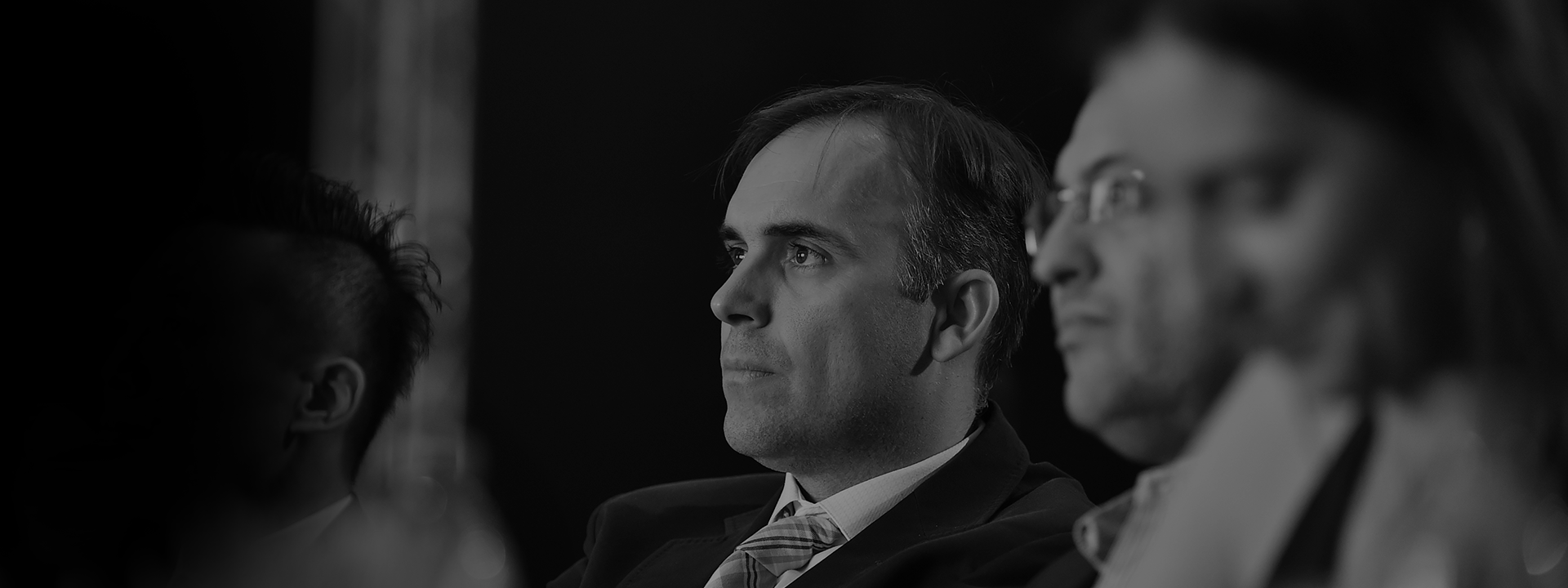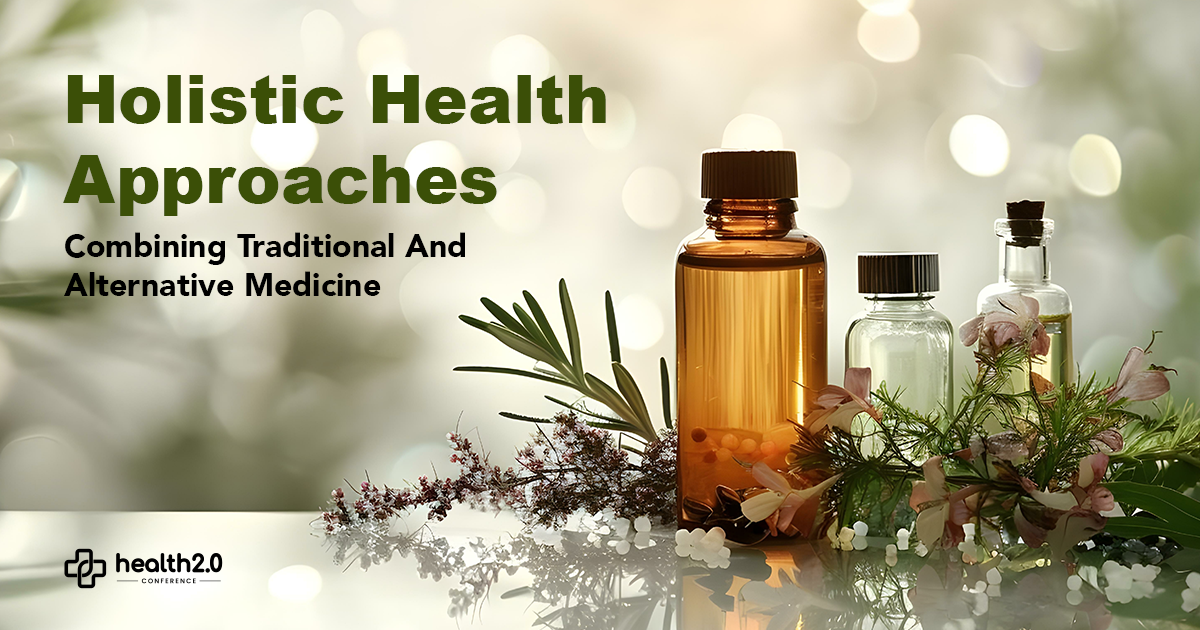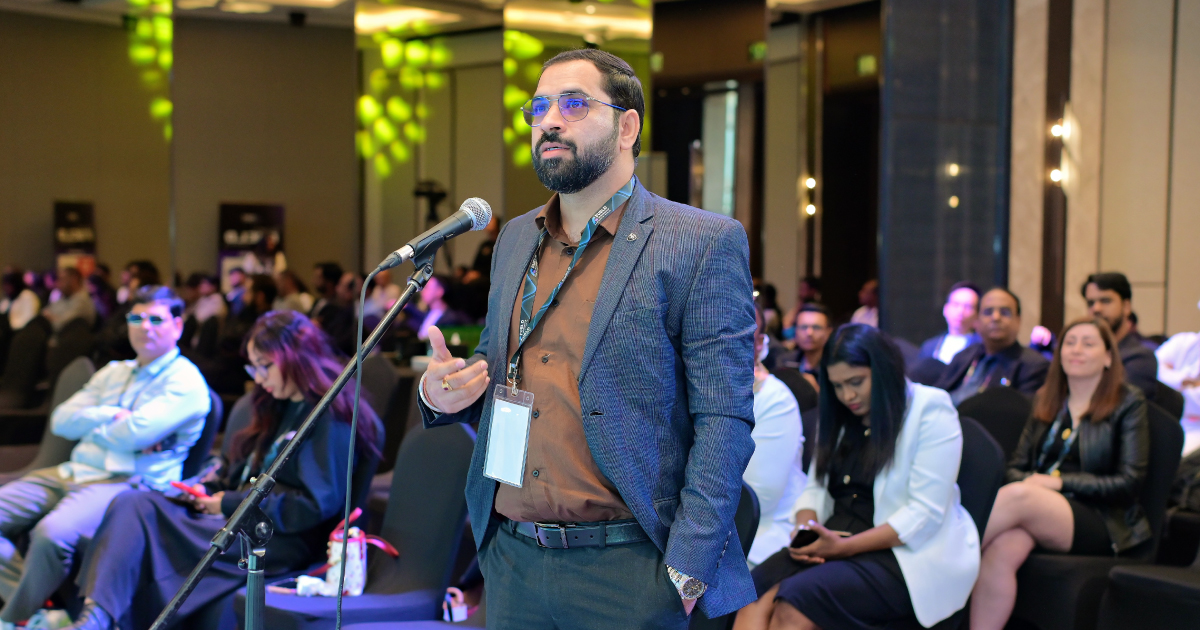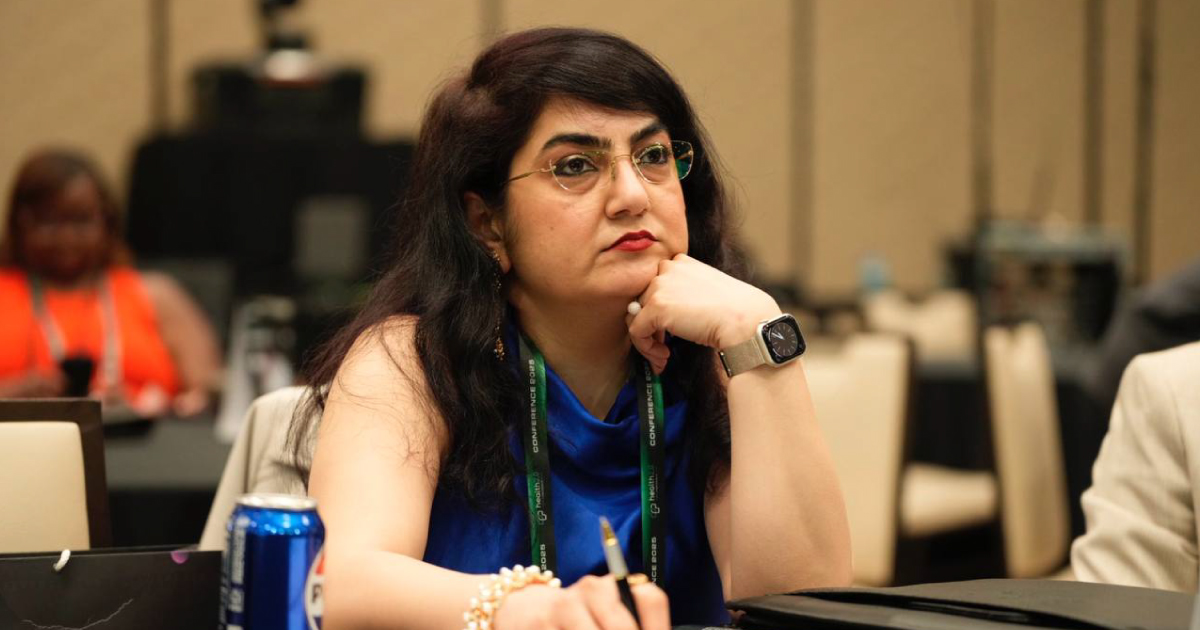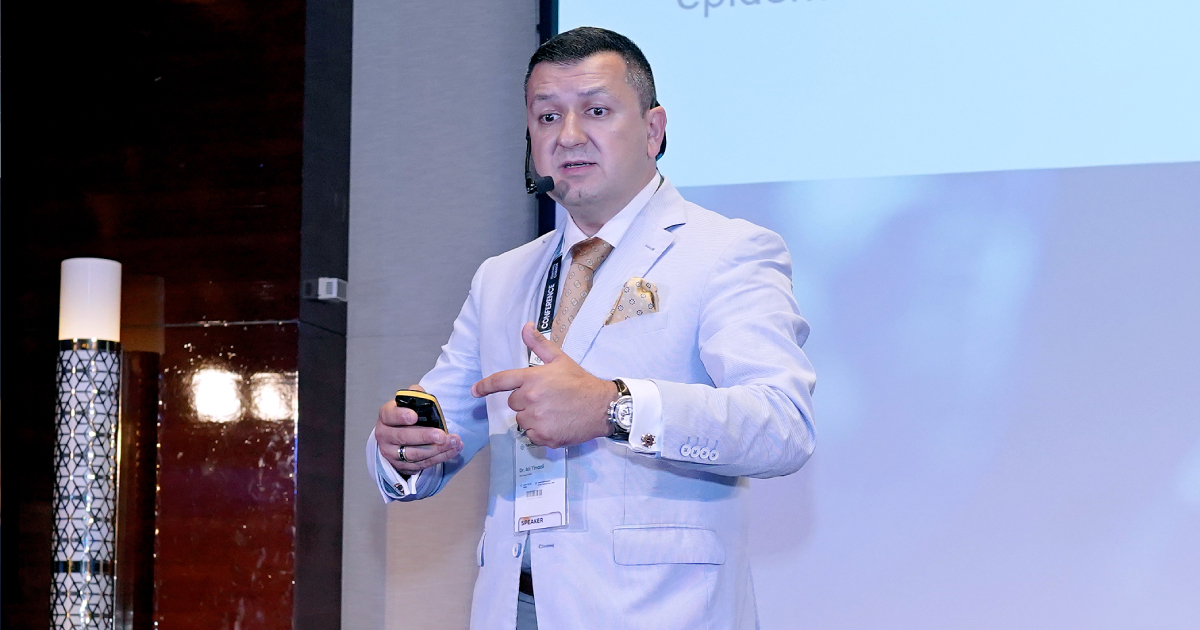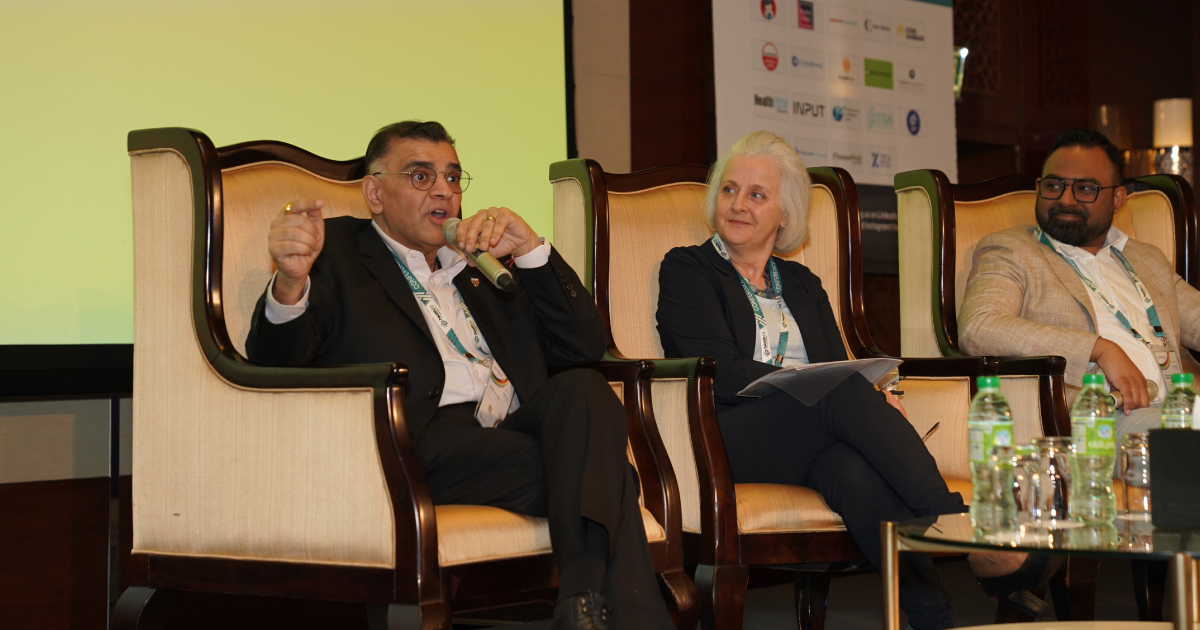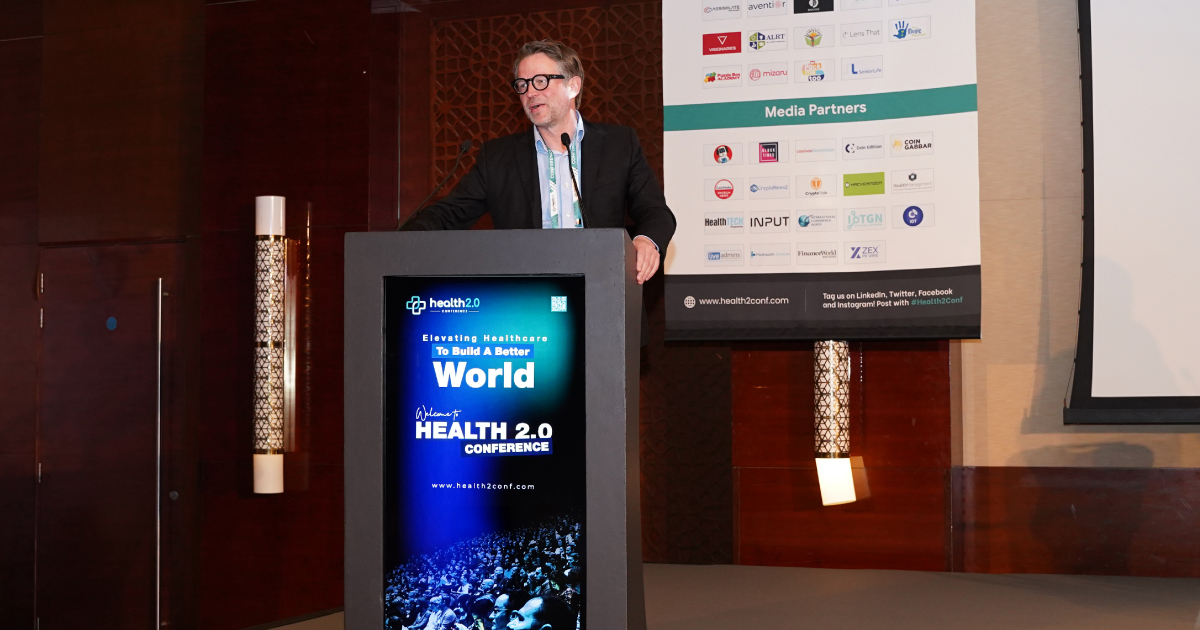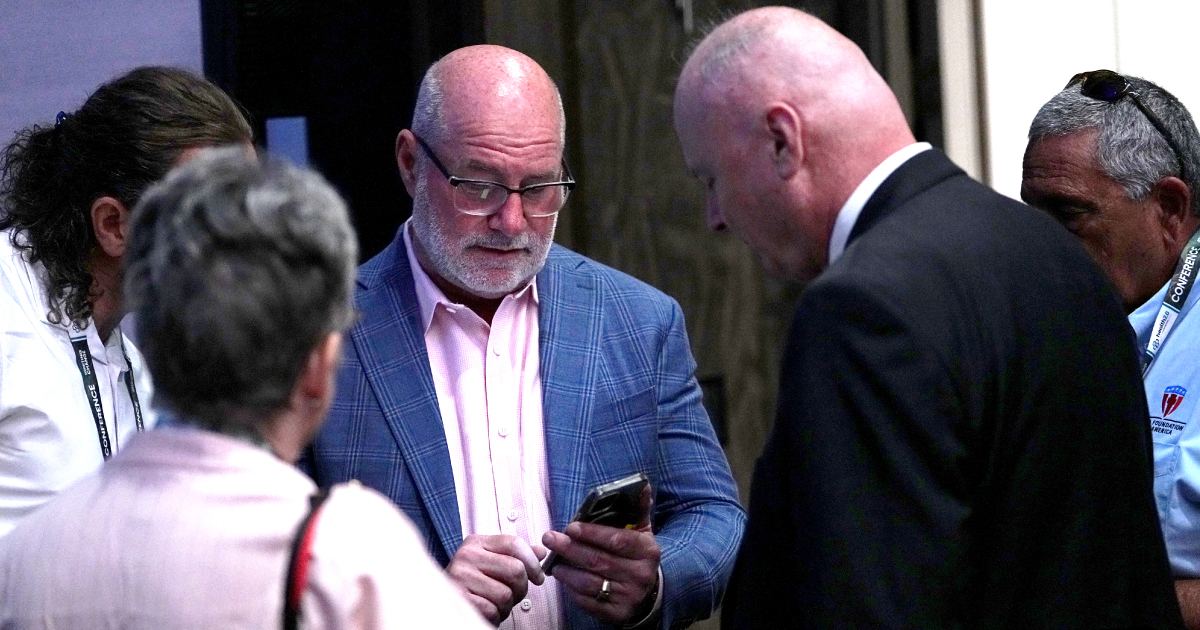As the global health landscape evolves, so does our understanding of what it means to be healthy. Viewing health as merely the absence of disease is no longer sufficient. Today, a growing number of healthcare practitioners and patients are advocating for a more holistic approach to health—one that combines traditional medical practices with alternative therapies. Upcoming healthcare events, such as the Health 2.0 Conference, strive to showcase these advancements creating more awareness and education on this emerging trend,
This shift towards holistic health is driven by a recognition that modern medicine, while incredibly effective in areas such as surgery and emergency care, may not have all the answers when it comes to chronic conditions, mental health, and preventative care.
By blending traditional methods with alternative treatments, such as herbal medicines, acupuncture, and mindfulness practices, a more balanced and nuanced form of health care is emerging.
The Growing Appeal Of Integrative Health
The increasing popularity of holistic health isn't just anecdotal; it's backed by statistics. According to a survey by the National Institutes of Health, about 30% of adults and roughly 12% of children in the United States use healthcare approaches developed outside of mainstream Western or conventional medicine. This growing trend reflects a shift towards more integrative care models that blend traditional medical practices with alternative treatments, creating a comprehensive approach that caters to a broader range of health needs.
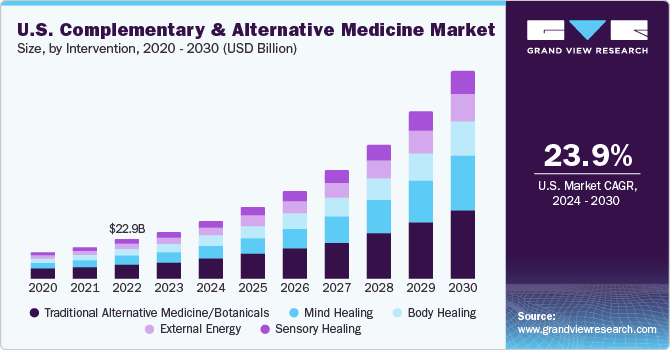
Source- ‘Grand View Research’
Understanding Traditional vs. Alternative Medicine
Traditional medicine, often referred to as Western medicine, includes the standard practices that are widely accepted and practiced by medical professionals, such as pharmaceuticals, surgical procedures, and other methods supported by scientific research. These practices are often highlighted at conferences like the 2024 Health 2.0 Conference, a leading healthcare conference in Dubai. Alternative medicine, on the other hand, includes practices and treatments that are used instead of traditional medical treatments. This category encompasses a wide array of practices, including acupuncture, herbal medicine, massage therapy, and yoga, among others.
The challenge and the opportunity lie in harmoniously integrating these two distinct systems. While traditional medicine is excellent at treating acute and some chronic conditions, alternative medicine offers effective tools for prevention, management of chronic stress, and improvement of quality of life. By leveraging the strengths of both systems, patients can enjoy a more thorough, customized healthcare experience.
The Benefits Of An Integrated Approach
Integrating traditional and alternative medicine can enhance patient outcomes in several key areas, which is set to be the focus at many upcoming healthcare events. For instance, in oncology, patients treated with a combination of chemotherapy and acupuncture often experience reduced side effects and improved well-being compared to those undergoing conventional treatment alone. Additionally, alternative approaches can offer new solutions for chronic pain—a condition that traditional medicine often struggles to manage without the extensive use of medications.
Upcoming healthcare events will also spotlight how practices like yoga and meditation not only help reduce pain but also decrease the psychological distress associated with chronic pain conditions. These therapies work on the principle of mind-body synergy and can significantly reduce the reliance on pharmaceutical interventions.
Enhancing Mental Health Through Holistic Practices
Mental health is another crucial area where holistic approaches can make a significant impact, as suggested by experts at leading 2024 healthcare conferences in Dubai, such as the Health 2.0 Conference. Traditional medicine typically addresses mental health issues through medications and psychotherapy. However, incorporating alternative therapies like mindfulness, meditation, and even nutritional counseling can enhance these conventional treatments. Holistic approaches recognize the interconnectedness of the mind and body and seek to treat mental disorders by improving overall health.
Challenges And Considerations
Despite the potential benefits, integrating traditional and alternative medicine comes with its set of challenges. One major issue is the variability in the quality and regulation of alternative therapies. Unlike pharmaceuticals, many herbal supplements and alternative treatments are not subjected to rigorous testing and standardization, leading to concerns about their safety and efficacy.
To address these issues, it is crucial for patients and healthcare providers to engage in open and informed discussions. Patients should be encouraged to disclose all their health practices to ensure safe and coordinated care. Furthermore, healthcare providers need to be educated about the various alternative therapies to better guide their patients.
Looking Ahead: The Future Of Holistic Health
As the field of holistic health continues to evolve, it promises to redefine the standards of effective healthcare. With ongoing research into the efficacy of alternative therapies and increasing integration into mainstream medical curricula, the future of healthcare looks more adaptable, inclusive, and personalized.
Conclusion
The integration of traditional and alternative medicine, a key focus of upcoming healthcare events such as the Health 2.0 Conference, heralds a new era in healthcare. This paradigm shift not only aims to treat illnesses but also promotes overall well-being, empowering individuals to take proactive control of their health.
As this holistic approach continues to grow, it offers the promise of a healthcare system that is more compassionate, comprehensive, and tailored to the individual needs of each patient. Through continued research and open dialogue, holistic health approaches will continue to evolve, potentially offering more effective solutions for the diverse health challenges of the modern world. For more information about the Health 2.0 Conference, please visit- www.health2conf.com.
FAQs
Q. What sets holistic health apart from conventional medical practices?
Ans. Holistic health transcends traditional care by blending established medical treatments with alternative therapies. This comprehensive approach prioritizes overall well-being, focusing not just on the absence of disease but on achieving a balanced state of health.
Q. How does combining traditional and alternative medicine benefit patients?
Ans. This integrative approach leverages the strengths of both traditional medicine and alternative treatments, such as acupuncture and yoga, to enhance patient outcomes, reduce the side effects of conventional treatments, and offer innovative solutions for managing chronic health issues.
Q. What are the key benefits of adopting a holistic approach to healthcare?
Ans. Integrating holistic practices into healthcare can significantly improve patient care by reducing dependence on pharmaceuticals, enhancing life quality through preventative care, and providing effective management strategies for chronic conditions and mental health issues.
Q. What topics will experts explore regarding holistic health at the Health 2.0 Conference?
Ans. At the Health 2.0 Conference, leading experts will discuss the synergistic potential of traditional and alternative medicines, evaluating their combined impact on healthcare systems and patient well-being while also addressing the complexities of integrating these diverse practices into mainstream healthcare.
Q. What are the main challenges in integrating traditional and alternative medical practices?
Ans. The integration of traditional and alternative medicine faces challenges such as the inconsistency in the quality and regulation of alternative treatments, which can raise concerns about their safety and efficacy. Achieving a standardized and evidence-based approach is crucial for wider acceptance and implementation.


